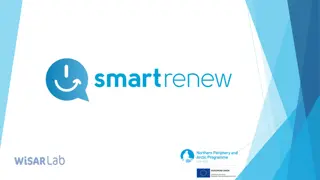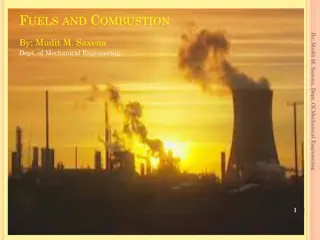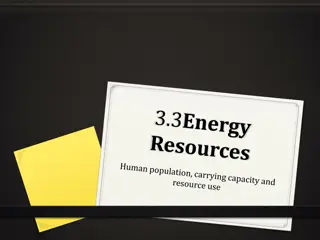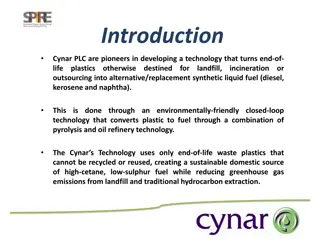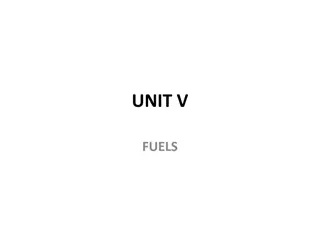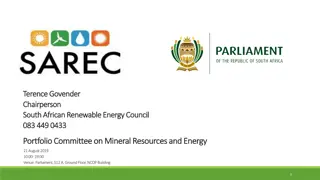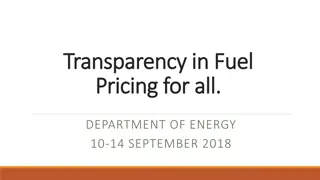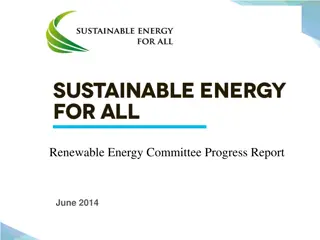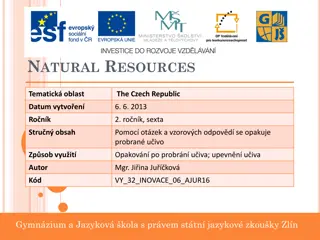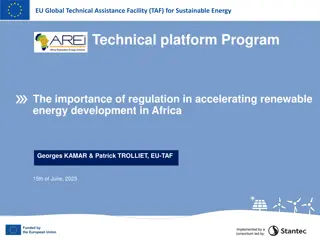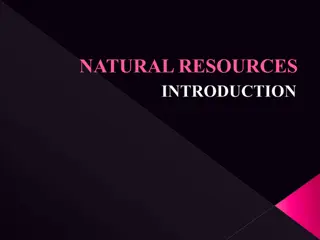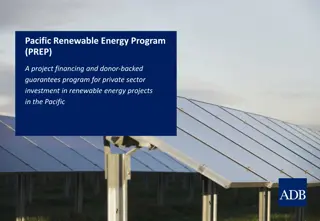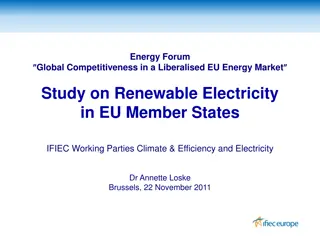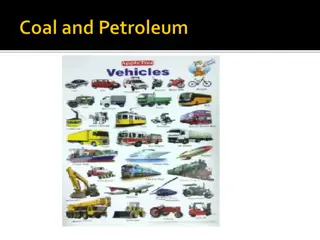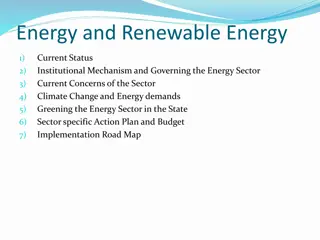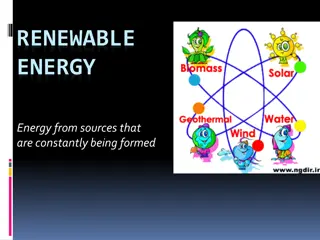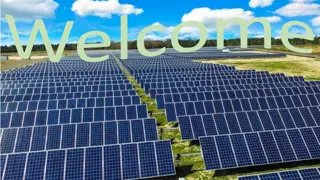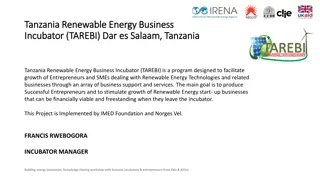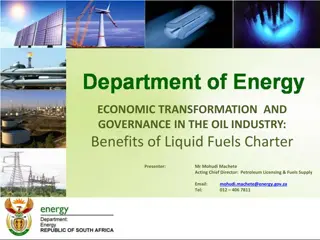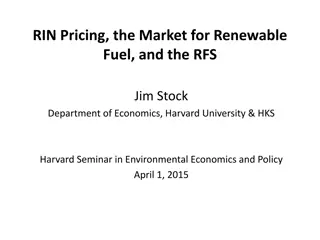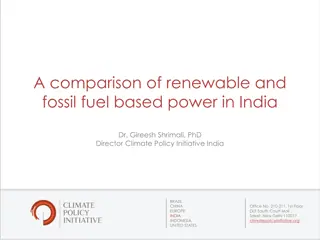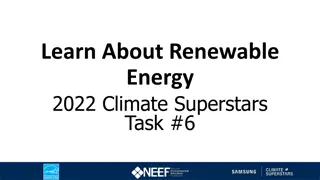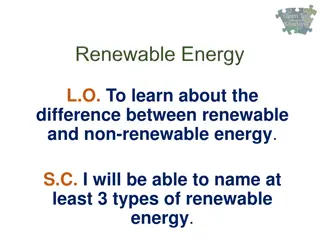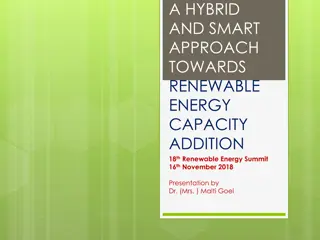Bunker Fuel Market
Bunker fuel is a fuel oil used in marine vessels. It is poured into the ship bunkers to keep the engines running. Ships use three types of marine fuels, which include high sulfur fuel oil, low sulfur fuel oil, and diesel oil. Presently, growth in awareness toward reducing environmental pollution and
2 views • 6 slides
Bunker Fuel Market
Bunker fuel is a fuel oil used in marine vessels. It is poured into the ship bunkers to keep the engines running. Ships use three types of marine fuels, which include high sulfur fuel oil, low sulfur fuel oil, and diesel oil. Presently, growth in awareness toward reducing environmental pollution and
1 views • 6 slides
Bunker Fuel Market
Bunker fuel is a fuel oil used in marine vessels. It is poured into the ship bunkers to keep the engines running. Ships use three types of marine fuels, which include high sulfur fuel oil, low sulfur fuel oil, and diesel oil. Presently, growth in awareness toward reducing environmental pollution and
6 views • 6 slides
Understanding Renewable Energy: Sources, Advantages, and Disadvantages
Explore the sources, benefits, and drawbacks of renewable energy, and learn about its impact on climate change. Discover how fossil fuels contribute to environmental issues and why transitioning to renewable energy is crucial for a sustainable future.
3 views • 14 slides
Renewable Energy
These resources support practitioners in delivering renewable energy concepts for engineering and manufacturing qualifications at levels 2 and 3. Topics covered include sources of renewable energy, advantages and disadvantages, planning for renewable energy, delivery suggestions, energy calculations
5 views • 19 slides
Smarter Renewable Energy and Heating Management Project Overview
SMARTrenew project aims to address challenges in the Arctic and Northern regions related to low population densities, cold climate, and reliance on fossil fuels. The project focuses on implementing smart renewable energy and heat storage solutions, building transnational networks, and evaluating the
0 views • 10 slides
Exploring Fuels and Combustion in Mechanical Engineering
This content delves into the intricate world of fuels and combustion, discussing classifications, properties, and origins of various fuels such as solid, liquid, and gaseous. It covers the importance of desirable fuel properties, caloric values, and the different types of natural and artificial fuel
0 views • 34 slides
Overview of Energy Resources: Renewable and Non-Renewable
Energy resources are classified into renewable and non-renewable types, with a mix of both used worldwide. Non-renewable resources dominate global energy consumption, with fossil fuels like oil, natural gas, coal, and nuclear energy being major sources. While non-renewable sources still dominate, ef
1 views • 20 slides
Innovative Fuel Technology by Cynar PLC: Converting Plastic Waste into Sustainable Fuels
Cynar PLC pioneers technology converting end-of-life plastics into synthetic liquid fuels, reducing landfill waste and greenhouse gas emissions. Seeking partners for future fuel development and renewable energy projects. Advanced discussions with potential collaborators. Opportunities to combine alt
0 views • 5 slides
Exploring Renewable Energy Options on Moja Island
Explore the initiative on Moja Island to identify suitable renewable energy options for its communities, aiming to bridge the energy gap and improve lives. Join the task of suggesting renewable energy solutions for the four main communities on the island, guided by the belief that sustainable energy
0 views • 10 slides
Understanding Fuels and Their Classification
Fuels are combustible substances that serve as a source of heat or raw material for various industries. They can be classified as natural or artificial, solid, liquid, or gaseous, and primary or secondary fuels. Primary fuels like coal and wood are directly used for heat, while secondary fuels are m
4 views • 88 slides
Advancing Renewable Energy in South Africa: SAREC Presentation Highlights
SAREC, the South African Renewable Energy Council, plays a vital role in promoting the renewable energy sector in South Africa. Their objectives include supporting a just energy transition, engaging with government, promoting excellence in renewable energy, and collaborating with various organizatio
4 views • 20 slides
Understanding Renewable Energy for a Sustainable Future
This lesson focuses on the importance of renewable energy in meeting future energy needs sustainably. Students discuss and differentiate between renewable and non-renewable energy sources, analyze energy generation in Wales, and make decisions on investing in renewable energy options. They also eval
0 views • 6 slides
Challenges and Opportunities in Fuel Pricing and Energy Sector Development in Tuvalu
Tuvalu faces challenges in fuel pricing transparency and importation, with opportunities for renewable energy development. The country heavily depends on imported petroleum fuels but lacks effective regulations, especially in monitoring fuel prices. The Department of Energy aims to improve well-bein
1 views • 11 slides
Renewable Energy Deployment in Slovenia: Achieving Targets and Overcoming Challenges
The content provides insights into Slovenia's progress in renewable energy deployment, focusing on achieving targets and combating challenges. It covers topics such as renewable energy targets, sectoral goals, RES utilization, and the role of various renewable sources in the country. Statistical dat
0 views • 19 slides
Renewable Energy Committee Progress Report June 2014
The Renewable Energy Committee Progress Report for June 2014 highlights the importance of renewable energy in the current economic and environmental landscape. It discusses trends, objectives, activities, and areas of focus related to renewable energy. The report underscores the global shift towards
1 views • 11 slides
Renewable Energy and Energy Efficiency in West Africa: Current Status and Future Prospects
The content discusses the vision, challenges, potentials, constraints, and establishment of the Economic Community for West African States (ECOWAS) Centre for Renewable Energy and Energy Efficiency (ECREEE) in West Africa. It highlights the region's significant renewable energy potentials, the barri
0 views • 10 slides
Natural Resources and Mineral Deposits in the Czech Republic
The Czech Republic's natural resources include renewable sources like sun energy and water, as well as non-renewable resources such as mineral deposits and fuels like black coal and oil. The country has rich non-metal deposits and varied metal deposits. Mineral deposits are abundant, with significan
0 views • 8 slides
Geothermal Institute at University of Auckland - Advancing Renewable Energy Solutions
The Geothermal Institute at University of Auckland, led by Prof. Rosalind Archer, specializes in geoscience, reservoir engineering, and renewable energy technologies. Their research projects range from fundamental geoscience to societal implications in energy markets. The institute offers educationa
0 views • 13 slides
Load Following by Nuclear Power Plants in Relation to Variable Renewable Energies' Development
The study explores the requirements of load following by nuclear power plants in the context of variable renewable energies' growth. It discusses the impact of renewable energy development on nuclear economic models and the need for dispatchable capacities. Benchmarks are set to test robustness of d
0 views • 11 slides
Importance of Regulation in Accelerating Renewable Energy Development in Africa
The presentation discusses the significance of regulation in driving the development of renewable energy in Africa. It emphasizes key legal and regulatory requirements such as tariff principles, unbundling, incentives for renewable energy, competition, and transparent procedures. The need for sector
0 views • 22 slides
Understanding Natural Resources: Types and Conservation
Natural resources play a crucial role in sustaining life on Earth, encompassing elements like water, air, soil, minerals, and more. These resources can be classified into renewable and non-renewable categories, with the former being replenishable through natural cycles and the latter being finite an
0 views • 24 slides
Pacific Renewable Energy Program (PREP) Overview and Financing Details
The Pacific Renewable Energy Program (PREP) offers project financing and donor-backed guarantees to facilitate private sector investment in renewable energy projects in the Pacific region. By addressing short and long-term liquidity risks, PREP aims to attract investors to develop solar and wind pro
0 views • 4 slides
Analysis of Renewable Energy Policies in the Liberalised EU Energy Market
This study examines the global competitiveness of the energy forum in a liberalised EU energy market, focusing on renewable electricity in EU member states. It delves into the energy balance, political context regarding European climate targets, industry involvement, and the financial context of ren
0 views • 16 slides
Understanding Fuels and Their Uses
Fuels are substances that release energy when burned, such as coal, petroleum, and natural gas. They are used in transportation, cooking, heating, electricity production, and industrial processes. Good fuel characteristics include being economical, easily available, non-toxic when burned, high heat
0 views • 9 slides
Renewable Energy Status and Trends in Tamil Nadu: Challenges and Opportunities
Renewable energy accounts for a significant portion of Tamil Nadu's electricity grid capacity, with a focus on wind energy. Despite this, the actual energy generated from renewable sources remains low. The state faces challenges such as high electricity consumption, sector-wise variations, and trans
0 views • 18 slides
Exploring Renewable Energy Sources
Renewable energy is derived from constantly replenished sources such as solar power, wind power, biomass, hydroelectricity, and geothermal energy. These sustainable sources offer clean alternatives to traditional fossil fuels, contributing to a greener future. Solar energy utilizes the sun's power t
0 views • 16 slides
Understanding Different Sources of Energy
Exploring conventional and non-conventional sources of energy, this content discusses the characteristics of a good fuel source, such as high energy output and ease of availability. It delves into the distinction between renewable and non-renewable energy sources, highlighting fossil fuels as non-re
0 views • 22 slides
Exploring Renewable and Non-Renewable Energy Sources for Sustainable Living
Discover the diverse world of renewable and non-renewable energy sources with a focus on renewable energy for a sustainable future. Learn about geothermal power, solar power, wind power, tidal power, biomass power, and the advantages and disadvantages of non-renewable energy resources. Engage in dis
0 views • 16 slides
Tanzania Renewable Energy Business Incubator Overview
Tanzania Renewable Energy Business Incubator (TAREBI) in Dar es Salaam aims to support entrepreneurs and SMEs in renewable energy technologies. The program provides business support, coaching, networking, and investment support to foster successful, financially viable renewable energy startups. IMED
0 views • 4 slides
Understanding Fossils and Fossil Fuels
Explore the world of fossils and fossil fuels, learning how they are formed and what they reveal about Earth's history. Discover the various types of fossils, from imprints to whole organisms preserved in amber. Uncover the importance of fossils in studying geological changes over time and understan
0 views • 15 slides
Economic Transformation in Oil Industry: Benefits of Liquid Fuels Charter
Presentation by Mr. Mohudi Machete on the Petroleum Licensing & Fuels Supply, discussing the legislative mandate, objectives, and impact analysis of the Petroleum and Liquid Fuels Charter (LFC) in the South African oil industry.
0 views • 18 slides
RIN Pricing, Market Dynamics, and Policy Issues in Renewable Fuel Sector
The article discusses the Renewable Fuel Standard (RFS), Renewable Identification Numbers (RINs), RIN pricing fundamentals, pass-through effects, and policy implications in the renewable fuel market. It delves into legislative context, fuel categories, biofuels expansion, and a dynamic model of the
0 views • 37 slides
Comparative Analysis of Renewable vs. Fossil Fuel Power in India
The comparison between renewable and fossil fuel-based power in India reveals that the renewable energy sector has historically shown lower risk and higher returns than the fossil fuel sector. Investors perceive renewable energy investments to be less risky, with solar being seen as less risky than
0 views • 23 slides
Understanding Renewable Energy and its Benefits in 2022
Renewable energy sources like wind, waves, tides, sunlight, geothermal heat, and biomass play a crucial role in combating climate change by reducing greenhouse gas emissions. This task educates about the differences between renewable and non-renewable energy sources, the benefits of renewables, and
0 views • 10 slides
Understanding Fossil Fuels: Advantages, Disadvantages, and Impact
Fossil fuels like oil, coal, and natural gas have both advantages and disadvantages. They offer cheap energy with a high power output but contribute to pollution and are non-renewable. The method of processing fossil fuels in power plants is explained, highlighting their impact on the environment an
0 views • 11 slides
Strategies for Decarbonizing Shipping Industry
Infographic series released under CC-BY-NC-ND licensing by UMAS highlight the pathways for reducing greenhouse gas emissions in international shipping. Efficiency measures and transition to renewable energy and zero-carbon fuels are essential to meet the IMO's emission reduction targets. The use of
0 views • 8 slides
Exploring Renewable and Non-Renewable Energy Sources
Understanding the difference between renewable and non-renewable energy sources such as fossil fuels and renewable sources like biomass, hydro-electric, solar, wave, and wind energy. Learn how electricity is generated, the impact on the environment, and the benefits of using renewable energy. Discov
0 views • 15 slides
Innovations in Renewable Energy: A Smart Approach for Sustainable Future
Explore cutting-edge technologies like Floating Renewable Energy Platforms, Hybrid Energy Systems, Metal Air Batteries, and more, presented at the 18th Renewable Energy Summit. Learn about global renewable energy trends, India's capacity addition, and the potential for renewable power growth by 2030
0 views • 16 slides
Challenges and Future of Fossil Fuels in the Global Economy
The world's dependence on fossil fuels is declining, as evidenced by recent actions from major financial institutions and companies shifting away from investments in coal, oil sands, and Arctic drilling. Experts suggest that businesses adapting to a net-zero carbon world will thrive while those resi
0 views • 13 slides





